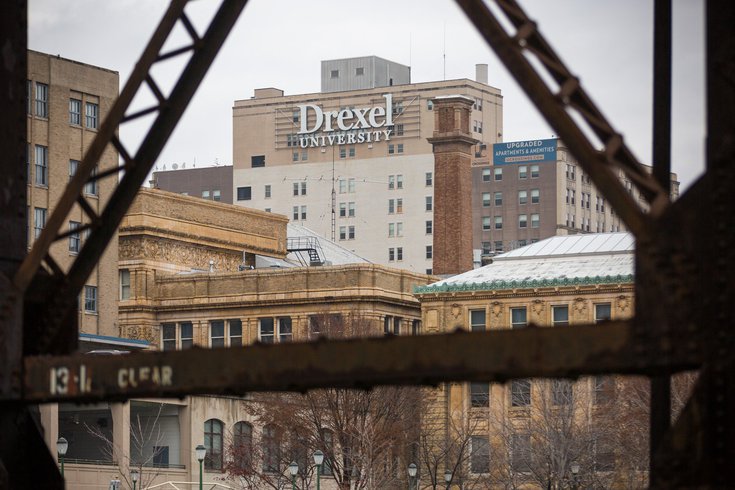
April 18, 2023
 Thom Carroll/for PhillyVoice
Thom Carroll/for PhillyVoice
Drexel University is exploring a strategic affiliation with Salus University, the private health sciences school in Elkins Park.
Drexel University and Salus University are working on a partnership that would combine graduate programs in health sciences, the presidents of each college said Tuesday.
Details of the Drexel-Salus affiliation have not yet been finalized, but the two universities say that a partnership would solidify degree program and clinical practice offerings at both schools at a time when higher education is becoming increasingly competitive.
"Many universities are considering these types of partnerships as part of a strategy to tap into new markets in areas of study that have strong labor demand outlooks," Drexel President John Fry said. "As stated in previous communications to the Drexel community, demographic shifts, global events and an uncertain economy are affecting higher education in unprecedented ways."
Salus University, a private school with a campus in Elkins Park, Montgomery County, was founded in 1919 as the Pennsylvania State College of Optometry. It is one of the oldest optometry colleges in North America. Salus offers a traditional doctor of optometry program and an accelerated, three-year program along with residency opportunities and options for international students.
In recent decades, the university has added programs in audiology, physician assistant studies, biomedicine, speech-language pathology, occupational therapy and orthotics and prosthetics. The Salus University name was adopted in 2008. The school has an enrollment of about 1,200 students. It also has clinical facilities in Philadelphia, including the Eye Institutes at Chestnut Hill.
Salus University President Michael H. Mittelman said research collaboration could be a focal point of an affiliation with Drexel.
"Such an affiliation, if completed, would greatly expand our ability to provide the very highest level of health care educational options, access to clinical programs, and major new opportunities for research collaboration – primarily because it would be built on the strengths of each institution, which complement each other very well," Mittelman told the Salus community.
The partnership would require support from each colleges' of board of trustees and may also have to recieve additional regulatory approval.
Drexel had a combined enrollment of just over 23,000 undergraduate and graduate students last year. Fry explained that the appeal of partnering with Salus is that the school has several non-overlapping programs that could expand graduate enrollment and interdisciplinary research. Drexel's top health sciences tracks are its medical, biomedical, public health, nursing and health professions programs.
An affiliation between Drexel and Salus would add to a list of similar partnerships that have emerged between universities in the region in recent years.
Thomas Jefferson University merged with the former Philadelphia University in 2017, while The Pennsylvania State System of Higher Education last year merged six of its schools to create the new Commonwealth University of Pennsylvania and Pennsylvania Western University.
In January, St. Joseph's University announced it will add a nursing program by merging with the Pennsylvania College of Health Sciences in Lancaster.
The last time Drexel pursued a major affiliation was in 2011, when it established an affiliation with the Academy of Natural Sciences, which had a longstanding relationship with Drexel in the areas of environmental science and paleontology.
"An affiliation with Salus creates a promising path forward for both institutions," said Fry, who plans to provide more information on the university's plans next week.